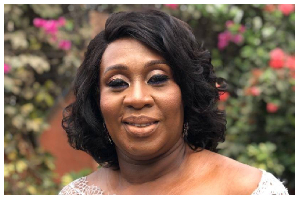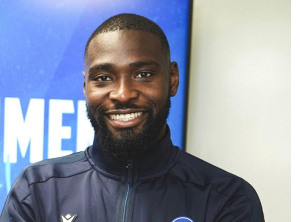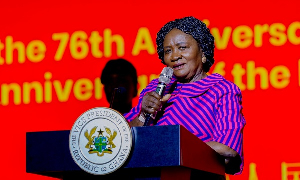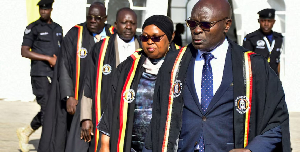These communities are three planets apart. They have very little in common, very much in common! They’ve all made headlines. National and international. But that’s not what they have in common.
If there is one thing the Nigerian High Commissioner to Ghana, Senator Musiliu Olatunde Obanikoro, never miss any opportunity to do, then it is his relentless effort to improve the image of his countrymen in Ghana. When the Ghana Institute of Journalism turned 50, he was the Guest Speaker, and as usual he could not have ended without telling the gathering to disabuse their minds of the notion that Nigerians are bad. Not really bad, but all the synonyms of bad. But the handsome gentleman of a politician seems to be fighting a losing battle.
Not long after that speech, the African oil giant made international headlines for the last reason anyone would want his country to be that “popular.” There was this innocent looking young man called Omar Farouk Abdul Mutallab who attempted to blow up Flight 253 in Detroit, which gave Nigeria an image-damaging press, to say the least. Then there came the opportunity for GoodLuck Jonathan to show the rest of the world how names could shape one’s destiny. But unlike the Egyptian President who handed over power and travelled overseas to seek medical treatment, President Yar’dua wanted to confirm one fact – that is not acceptable for the black company to part company with power so easily. It’s a sign of cowardice. That also had its toll on the Nation.
And when some of us were beginning to believe that the term Acting President was a real portfolio, the mindless killings in Jos came up. Christians and Muslims, the worshipers of God and Allah, wanted to end it all before the Messiah’s Second Coming. The last time I heard a BBC story on the Jos massacres, the people had lost confidence in the Nigerian Army and Police Service. They gave reasons.
How will there be a curfew, with full security presence, and some people can walk into the curfew villages, kill, maim and go unpunished? As I listened to some childish defense by one of Nigeria’s senior officers, I wondered what has become of our security agencies.
They have become architects of violent conflicts instead of preventers. Some years back it happened in Yendi when the paramount chief was murdered together with 40 elders in broad day light. They police were a few metres away from the scene of that indescribably gory massacre. No one was arrested.
Recently, the people of Tuobodom threatened on air that if their kidnapped chief did not return by 4:00 p.m. that day, “what would happen would happen.” When Joy FM contacted the police in the area, they, in their characteristic confidence of a boozeman said they were in control and not even a dog could bark. It is true that they were in control, but what would happen happened. Lives and property was lost.
Should the security personnel not be the number one culprits in some of these situations? In most conflict situations people usually look up to them to restore order. In Nigeria some have argued that the Army is made of mostly Muslims and that is why when Muslims attacked Christians, they sat down and watched them do the unthinkable. Officials denied this “baseless” claim.
Whatever it is, Ghana is lucky that this religious madness is yet to manifest itself in that unwholesome magnitude, but one thing has manifested itself enough and which calls for national action.
The security agencies are now losing the confidence of the public. They are always accused of taking sides in conflicts. Some are not true but certain actions by the security personnel betray the confidence of some sections of feuding parties. In some cases, the parties in such conflicts visit their wrath of the security agencies, and what happened in the Anlo chieftaincy clashes is still fresh.
I’m not a prophet of doom but when this trend is not curtailed, a time will come when no community will take the law enforcement agencies serious. When the animals fianally come to the realisation that the game keepers meant to protect them have become poachers, they will find a way of protecting themselves.
This can be deadly and a great threat to the peace and tranquility, which remains our most treasured national asset.
Credit: Manasseh Azure Awuni [www.maxighana.com] Email: azureachebe2@yahoo.com The writer is the SRC President of the Ghana Institute of Journalism and Press and Information Secretary of the Northern Students’ Union (NSU). To read more of his works, visit www.maxighana.com
Opinions of Tuesday, 30 March 2010
Columnist: Awuni, Manasseh Azure














